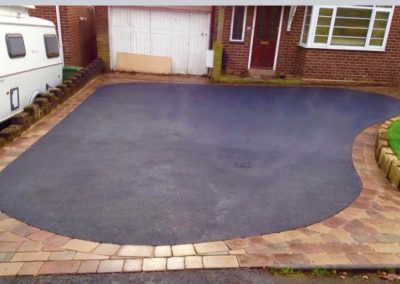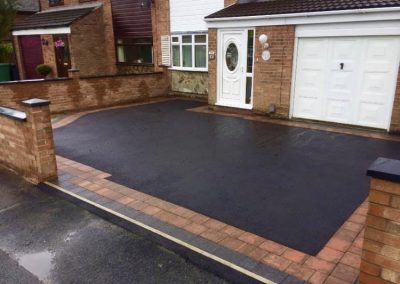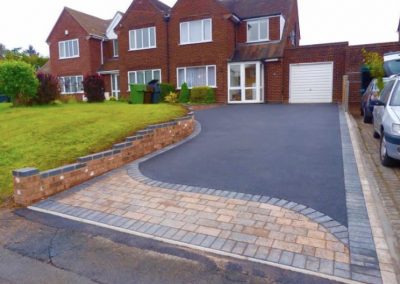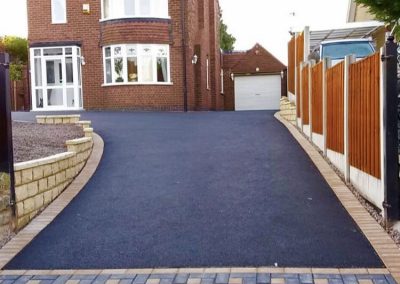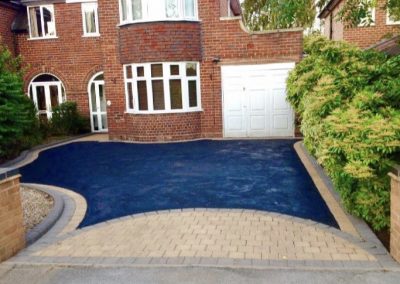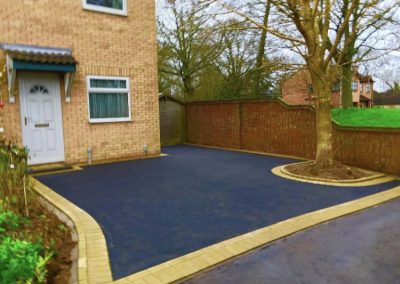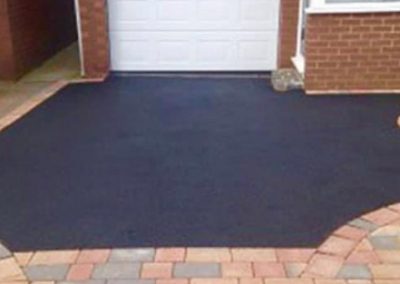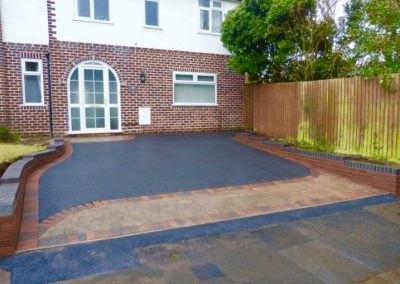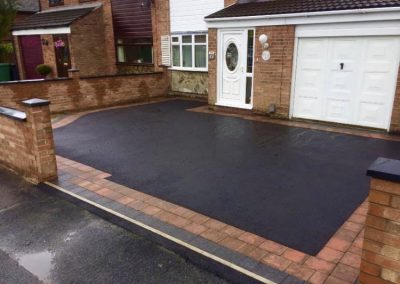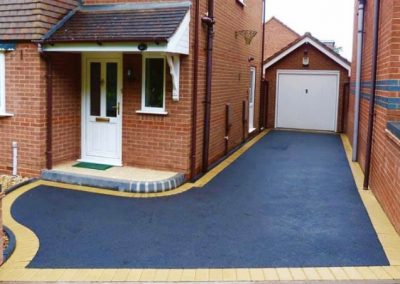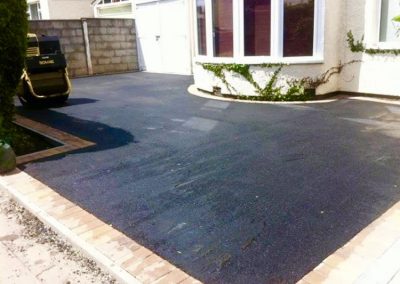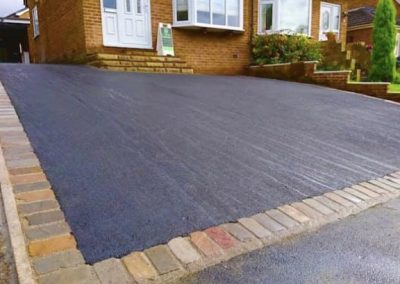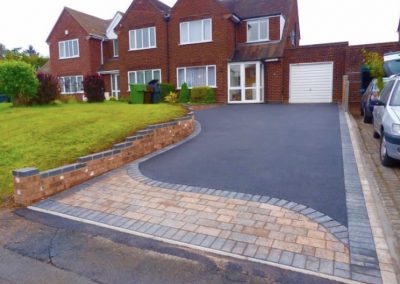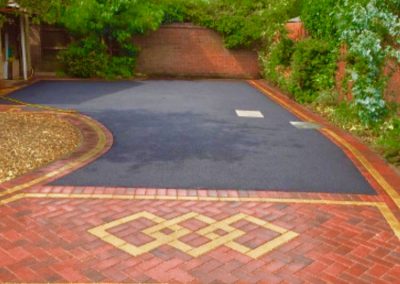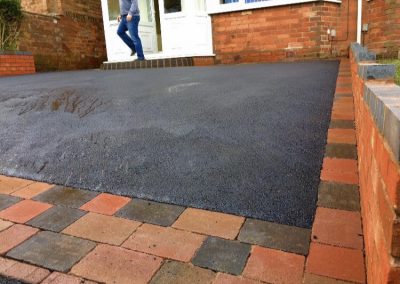Permeable Asphalt
Permeable asphalt answers the modern challenge of ensuring sustainability by maintaining water quality, reducing surface water run-off and mitigating flood risk when providing your driveway or outdoor surface solution.
Long-lasting, durable finish that is smooth, slip-resistant and most importantly, free draining.
A permeable asphalt driveway is much like a traditional asphalt and tarmac driveway with the added benefit of allowing natural dissipation of surface water through the surface of the aggregate. This reduction of surface run-off helps to greatly reduce channels of water running off your drive or asphalted area and, as such, helps to avoid overwhelming existing flood management schemes and infrastructure by allowing the water to seep through into the ground below.
Four distinct courses are bound together to define permeable asphalt as a modern development over a traditional asphalt system. A geotextile membrane is first applied, then a granular reservoir before introducing the permeable asphalt binder course and then finishing with the permeable asphalt surface course.
New Legislation Calls for Permeable Driveways
VubaMac: Flood Resistant Paving
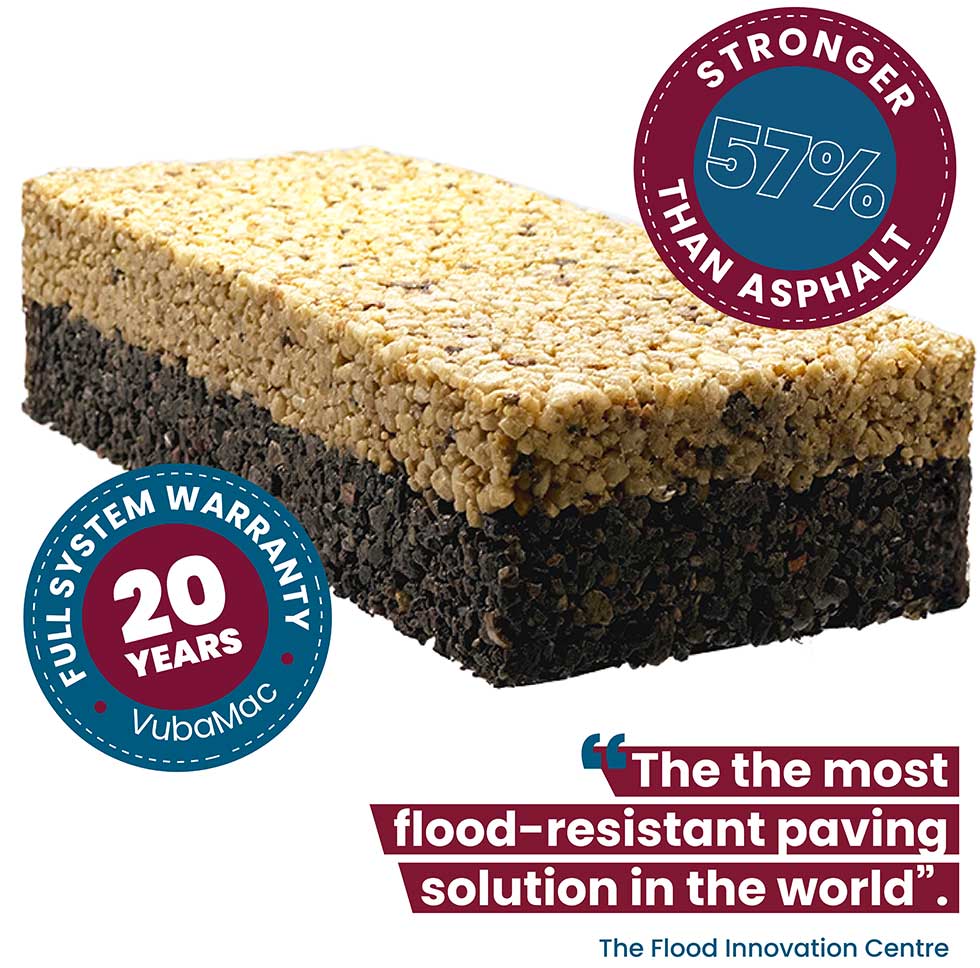
NEW! Moisture Tolerant Premium Resin



Why choose a permeable asphalt driveway over traditional tarmac?
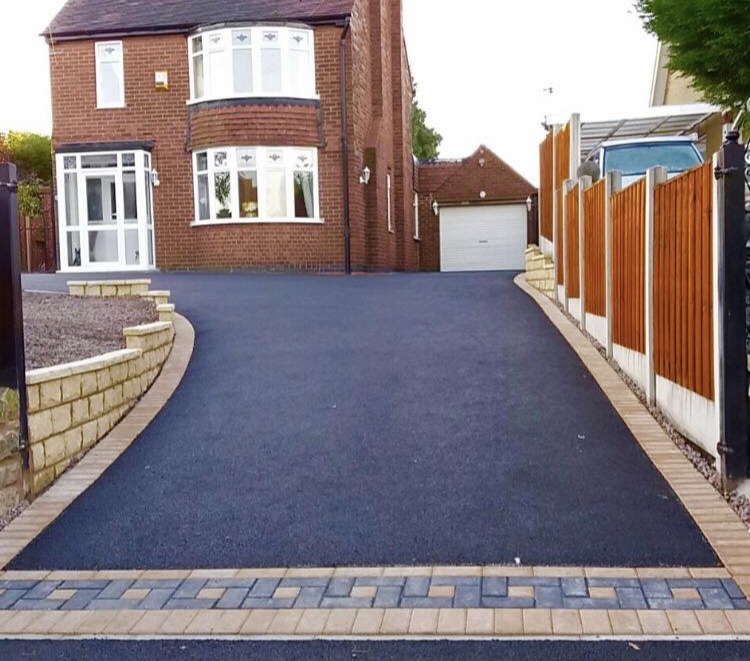
Long lasting, hard wearing and cost efficient too
This coupled with growing concerns over climate change and the severity of flood events that this brings along, there is now more of a need than ever to build sustainably in order to mitigate the risk of surface water flooding.
Permeable asphalt goes further in being able to filter water as it permeates, screening pollutants and trapping silts, heavy metals and other contaminants to reduce their intake into water courses.
What’s more, permeable asphalt continues to be long lasting, hard wearing and cost efficient too.
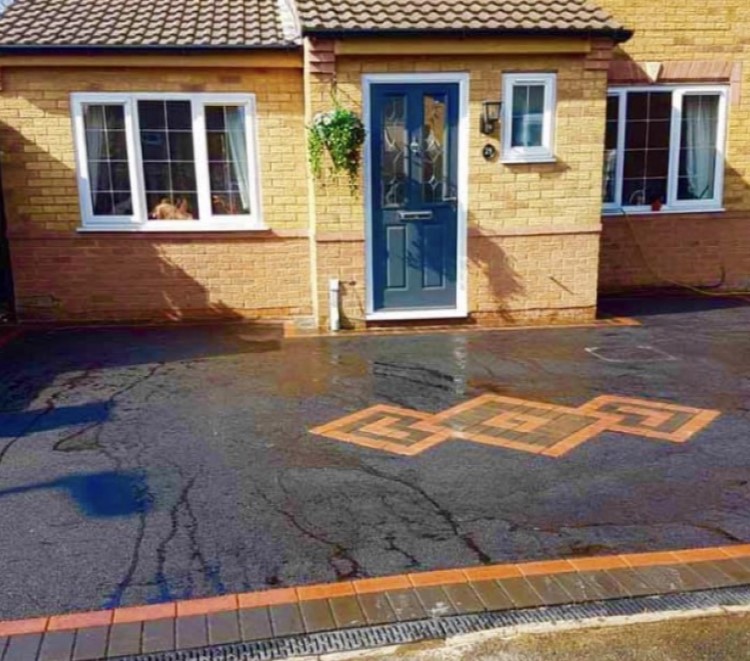
Permeable asphalt is highly effective when incorporated as part of a Sustainable Drainage System (SuDS)
If the ground below the property or driveway has low permeability then a partial infiltration system can be used under the asphalt to allow excess water that cannot be absorbed a path to be either guided away and discharged into a drainage system nearby, or attenuated in a suitable system.
Permeable asphalt can also be integrated with a sustainable drainage system on homes and sites where there is no permeability at all. This is achieved using an impermeable membrane that is placed below any drainage system which acts as an attenuation system, effectively storing the surface water until it can be drained at a controlled rate.
All of these systems when integrated with a permeable asphalt surface go further in helping to prevent water course pollution and reduces risk to biodiversity in the area.
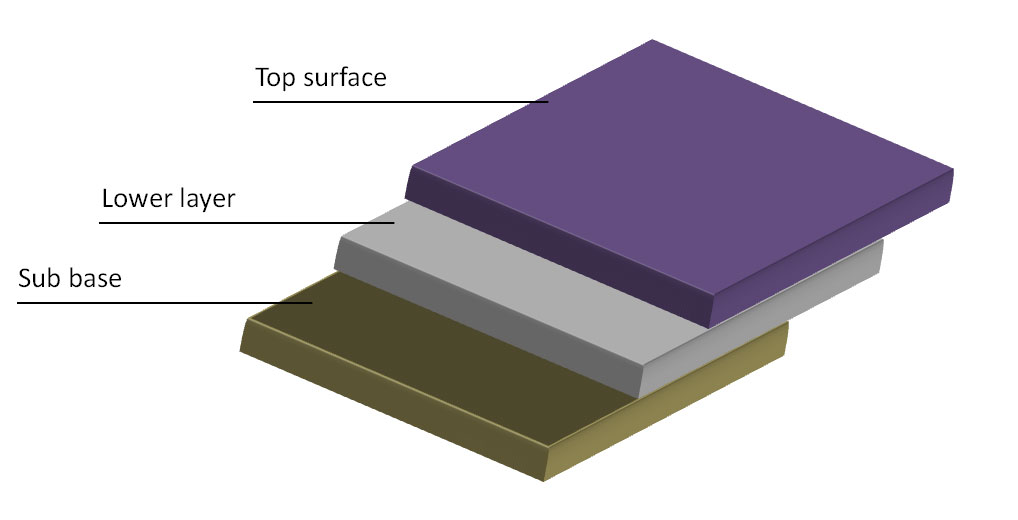
System A – Full infiltration
Allows all falling water to permeate through the top surface layer and then pass through the lower layer into the sub-base.
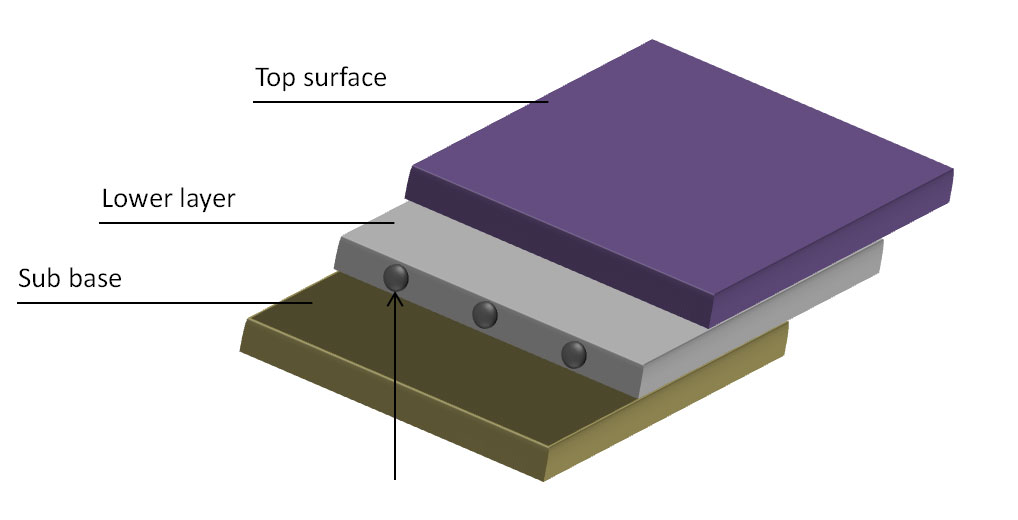
System B – Partial infiltration
The lower layer contains outlet pipes that allow any excess water that can’t penetrate into the ground to be drained away.
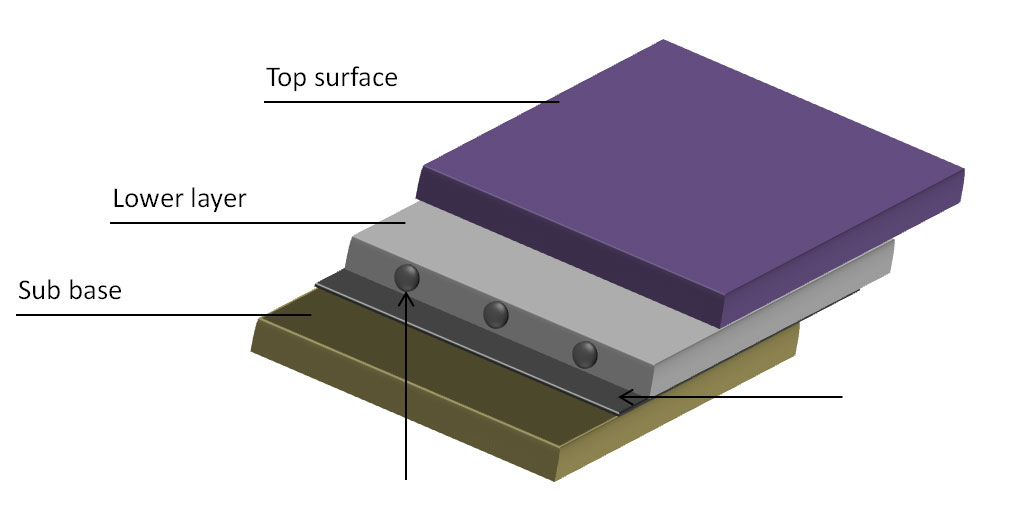
System C – Full attenuation
This includes an impermeable membrane above the sub base. Allows water to be captured for re-use such as irrigation.
Some of our recent work
From resin bound driveways, paths and patios through to block paving work, concrete and tarmac installations and more.
 5 Star Reviews
5 Star Reviews
